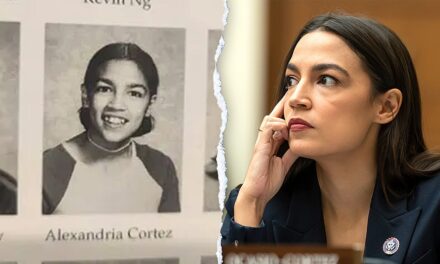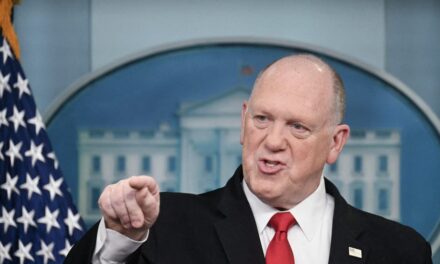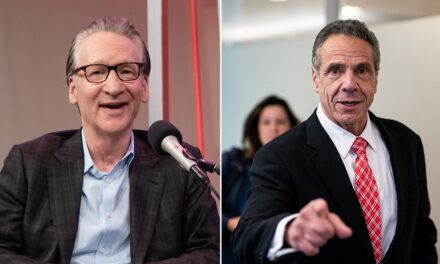In a bold and humorous take on contemporary socio-political issues, the latest episode of “Saturday Night Live” delivered a memorable Easter sketch that brought former President Donald Trump into the spotlight, likening him to a Christ-like figure. The sketch, cleverly titled “Donald Jesus Trump,” tackled themes surrounding faith, the economy, and the cultural absurdities that often permeate American life.
As the nation grapples with uncertainty in economic matters and fluctuating public faith in its leaders, SNL decided to use satire as a means of exploring the juxtaposition of Donald Trump with biblical narratives. This innovative sketch aimed to highlight not just Trump’s influence but also the strong emotional ties many Americans have to political figures, akin to religious fervor.
The sketch opened with an elaborate set designed to resemble a blend of modern-day America at Easter and biblical Jerusalem. Actors dressed in flowing robes mingled with figures donning red “Make America Great Again” hats, creating a surreal visual that set the tone for the parody.
As the scene unfolded, the character of “Donald Jesus Trump” emerged from a glittering door, complete with an exaggerated golden wig that played into the perceptions of Trump’s larger-than-life persona. The audience was met with a cacophony of laughter and applause as he made his grand entrance, immediately drawing parallels to traditional depictions of a messianic figure.
In his opening monologue, the character of Trump delivered a series of comedic one-liners that resonated with current economic woes, such as inflation rates and the ongoing debate about the state of the American workforce. Characteristically bombastic, the faux Trump projected an effervescent charm, convincing followers that their economic tribulations were merely tests of faith.
One side-splitting moment featured “Donald Jesus Trump” expounding on the miracles he claimed to have performed. He whimsically referenced lowering gas prices, boosting stock markets, and creating jobs through an imagined divine intervention. “I turned water into wine—well, sort of; it’s actually a very strong red. And, oh, the economy? It’s set to rise like Lazarus!” he quipped, drawing on gospel themes while poking fun at Trump’s penchant for hyperbole.
As this allegorical tale progressed, Trump’s followers, portrayed by a group of enthusiastic cast members, sang hymns that parodied traditional gospel songs. Their lyrics celebrated Trump’s supposed accomplishments, humorously blending contemporary vernacular with age-old sacred themes. The performance efficiently illustrated how political loyalty can blend into religious devotion, a phenomenon that has sparked significant discourse across the nation.
The satirical commentary reached its peak when the sketch pitted “Donald Jesus Trump” against an antagonistic group characterized as skeptics and critics—from economists debating financial data to political pundits questioning his leadership. The interactions brought forward several punchlines that echoed real-world discussions regarding Trump’s return to the political scene, as he seeks to reclaim his place as a dominant force in the Republican Party.
A particularly memorable exchange occurred when a character portraying a press secretary asked Trump directly about the economy’s downturn. With a twinkle in his eye, the SNL version of Trump cheekily responded, “It’s not a downturn; it’s just my spectacular performance art! Call it the ‘great economic resurrection’!” This quip not only evoked laughter but also managed to encapsulate the theme of resurrection related to Easter—though in a distinctly irreverent way.
Another critical piece of the sketch was its treatment of faith—both personal and political. At one point, “Donald Jesus Trump” proposed a “New Commandment” for his followers: “Thou shalt not doubt the ratings, for my ratings are always the highest!” Through such hyperbolic declarations, the sketch carved out a space for commentary on the interplay between belief and facts, particularly in the landscape of modern American politics.
Importantly, the sketch did not shy away from acknowledging the darker aspects of Trump’s tenure. Subtle nods to controversial policies and events from his presidency were sprinkled throughout the comedy, addressing issues such as immigration, social division, and the COVID-19 pandemic. These references served as poignant reminders of a complex legacy that remains a divisive topic among Americans.
As the sketch drew to a close, the comedic portrayals of faith morphed into an affirmation of character loyalty. In a spectacular finale, “Donald Jesus Trump” gathered his followers and performed a parody of an Easter pageant, inviting them to celebrate not just resurrection, but his anticipated return to the political arena. “And lo, I shall rise from the political grave!” he declared, as laughter filled the studio.
This sketch, like many prior SNL renditions, stands out for its crystal-clear comedic timing and clever dialogues. Writers effectively highlighted societal themes while ensuring that the humor remained accessible and thought-provoking. By taking on such a sensitive and layered issue, SNL demonstrated its role as a cultural touchstone not afraid to dig into the satire of political landscapes.
The sketch’s reception was mixed across social media platforms, reflecting the wider political culture that surrounds Donald Trump. Supporters celebrated the humor, often sharing clips and memes, while critics lamented the portrayal as overly simplified and reductive. This polarization indicates that interpretations of Trump as a figure of faith or economic promise can elicit deep emotional responses across the spectrum of American voters.
Reflecting on the impact of the sketch, many have pointed out that such portrayals are indicative of a larger national dialogue about the intertwining of faith and politics. In an era defined by significant social changes and challenges, humor has become a medium that allows for critique while sparking conversations about what it means to hold beliefs in both spiritual and political arenas.
In summation, SNL’s “Donald Jesus Trump” sketch exemplifies the power of satire to unveil truths while encapsulating the absurdity of the current political narrative. As Easter invites reflection on themes of faith and rebirth, SNL’s parody brilliantly caricatures these notions, leaving audiences entertained while prompting crucial conversations about the intersection of belief, politics, and economics in America today.
































